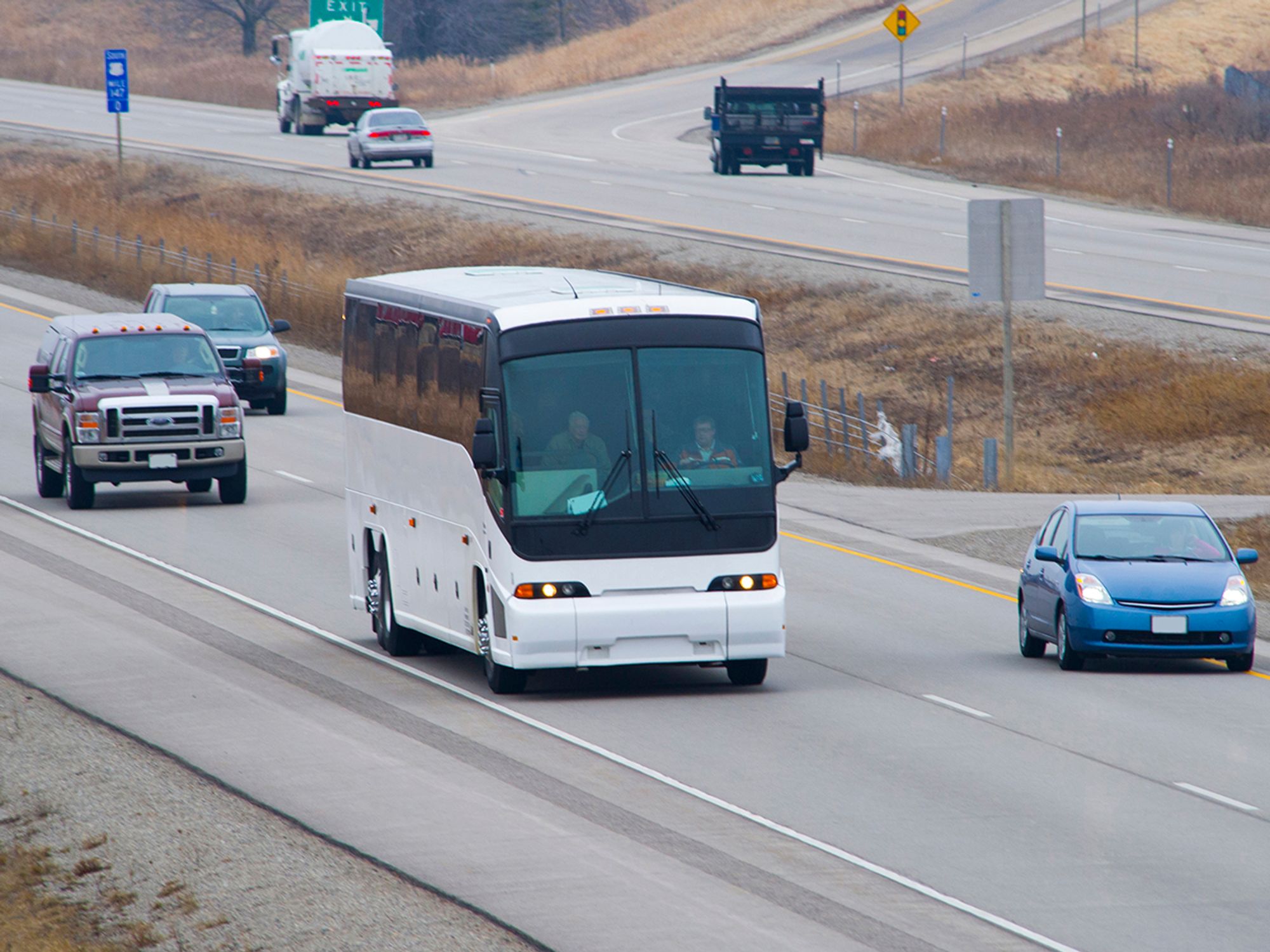Vehicle leasing and interchange between passenger carriers

The Federal Motor Carrier Safety Administration issued a final rule that revised regulations governing the lease and interchange of commercial buses. The compliance date was January 1, 2021.
FMCSA’s final rule includes the following provisions:
- The definition of a “lease” to excludes carriers with FMCSA-issued operating authority that grant the use of their vehicles to each other. The impact for carriers is that when a passenger-carrying vehicle is inspected the operating authority reflected by the USDOT number must be active at the time of the inspection, otherwise the driver must have a lease from another passenger carrier with active operating authority in the vehicle. If the driver can’t produce evidence of active operating authority, or a lease with a carrier that has active authority, this will cause the driver to be placed out of service;
- Removed the May 27, 2015, final rule’s marking requirements and reinstates the previous vehicle marking requirements with slight modifications;
- Revised the provision allowing a delay in the completion of a lease during certain emergencies; and
- Removed the requirement that motor carriers chartered for a trip who lease a commercial motor vehicle from another carrier to provide the transportation must notify the tour operator or group of passengers about the lease and the lessor.
Lease or agreement is required, so there must be in effect either:
- A lease granting the use of the passenger-carrying commercial motor vehicle with the required contents as noted below and performed by the lessee, or
- An agreement with a lessee meeting the required conditions under an interchange between motor carriers of passengers conducting service on a route or series of routes.
Lease requirements
Subpart G of Part 390 contains the lease and interchange requirements for passenger carrying motor vehicles. However, Subpart G of Part 390 does not apply to:
- Contracts and agreements between motor carriers of passengers that have active passenger carrier operating authority registrations with the Federal Motor Carrier Safety Administration when one such motor carrier acquires transportation service(s) from another such motor carrier(s).
- Contracts, however designated, that are called a lease, closed-end lease, hire purchase, lease purchase, purchase agreement, installment plan, demonstration or loaner vehicle, etc.) between a motor carrier and a bank or similar financial organization or a manufacturer or dealer of passenger-carrying commercial motor vehicles allowing the motor carrier to use the passenger-carrying commercial motor vehicle.
For a motor carrier transporting passengers in a leased or interchanged commercial motor vehicle, a written lease or agreement containing the information as follows is required when the lessee does not have FMCSA-issued authority:
- Vehicle identification information. The name of the vehicle manufacturer, the year of manufacture, and at least the last 6 digits of the Vehicle Identification Number (VIN) of each passenger-carrying commercial motor vehicle transferred between motor carriers pursuant to the lease or interchange agreement.
- Parties.The legal name, USDOT number, and telephone number of the motor carrier providing passenger transportation in a commercial motor vehicle (lessee) and the legal name, USDOT number, and telephone number of the motor carrier providing the equipment (lessor), and signatures of both parties or their authorized representatives.
- Specific duration. The time and date when, and the location where, the lease or interchange agreement begins and ends.
- Exclusive possession and responsibilities. A clear statement that the motor carrier obtaining the passenger-carrying commercial motor vehicle (the lessee) has exclusive possession, control, and use of the passenger-carrying commercial motor vehicle for the duration of the agreement, and assumes complete responsibility for operation of the vehicle and compliance with all applicable Federal regulations for the duration of the agreement.
If the use of a passenger-carrying commercial motor vehicle is conferred on one motor carrier subject to Subpart G by another such motor carrier without a lease or interchange agreement, or pursuant to a lease or interchange agreement that fails to meet all applicable requirements of subpart G, both motor carriers shall be subject to a civil penalty.
A 48-hour exception is available when an event (e.g., crash, vehicle disablement, ill driver) requires a carrier to immediately obtain a replacement vehicle from another carrier. When an event occurs (e.g., a crash, the vehicle is disabled) that requires a motor carrier of passengers immediately to obtain a replacement vehicle from another motor carrier of passengers, the two carriers may postpone the writing of the lease or written agreement for the replacement vehicle for up to 48 hours after the time the lessee takes exclusive possession and control of the replacement vehicle.
However, during that 48-hour period, until the lease or agreement is written and provided to the driver, the driver must carry, and produce upon demand of an enforcement official, a document signed and dated by the lessee’s driver or available company official stating:
- “[Carrier A, USDOT number, telephone number] has leased this vehicle to [Carrier B, USDOT number, telephone number] pursuant to 49 CFR 390.403(a)(2).”
A copy of the lease must be on the passenger-carrying commercial motor vehicle during the period of the lease or interchange agreement, and both the lessee and lessor shall retain a copy of the lease or interchange agreement for 1 year after the expiration date.
